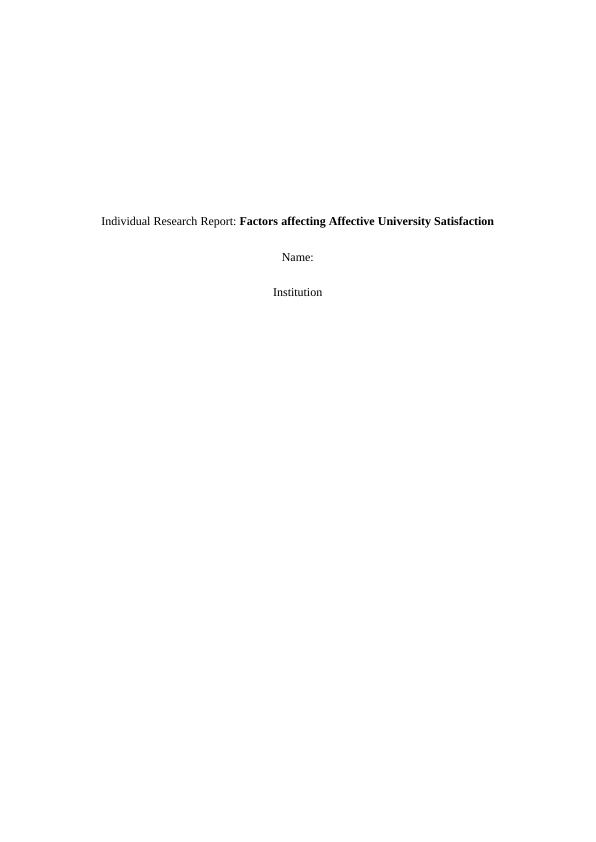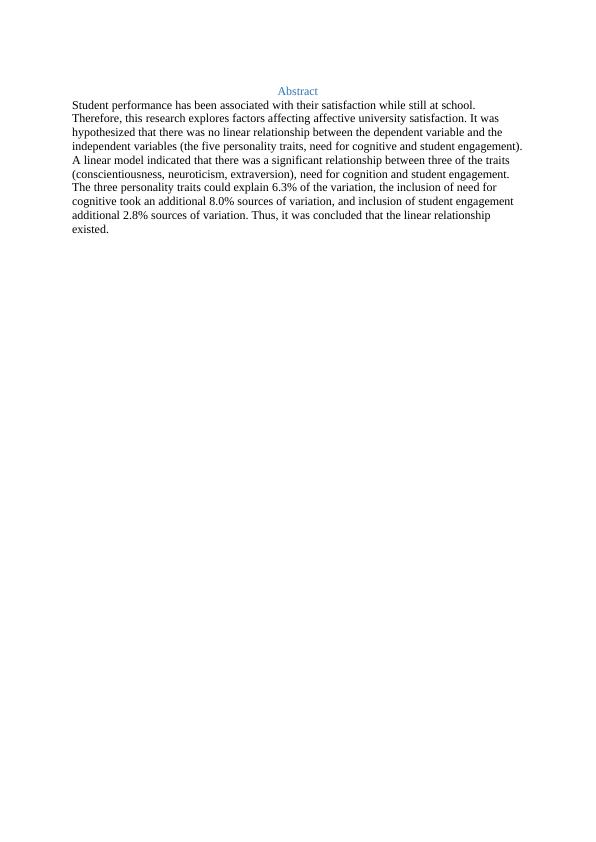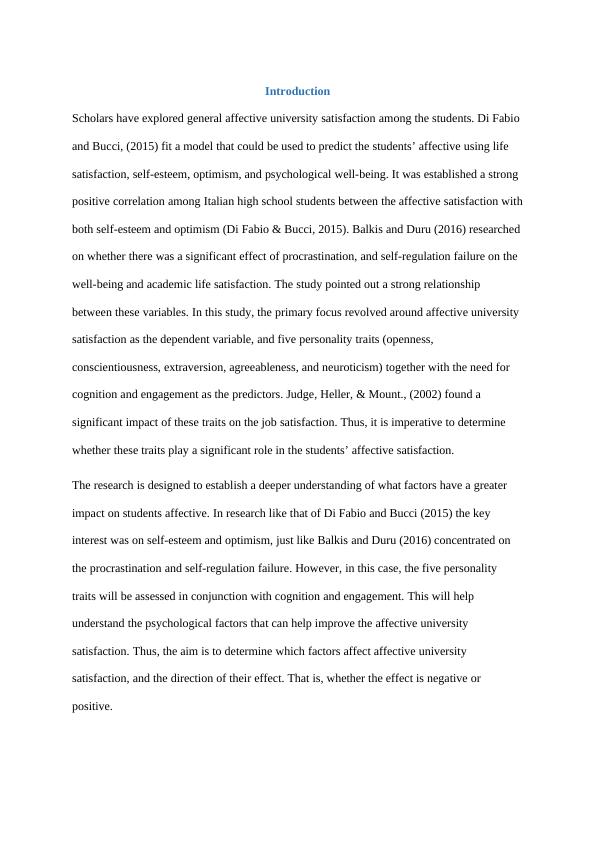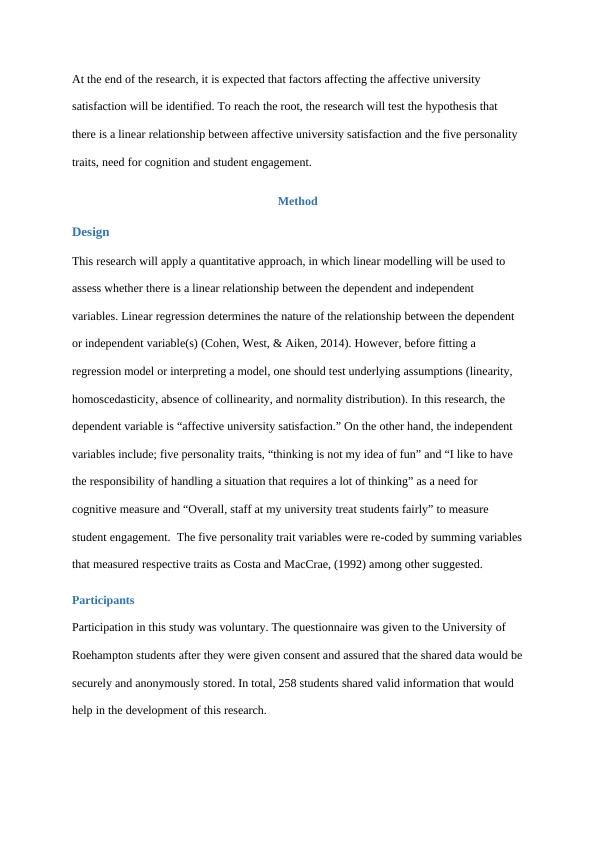Factors Affecting Affective University Satisfaction
Creating and recoding variables in SPSS, including recoding reverse-scored items and creating total scores on questionnaires for analysis.
15 Pages3055 Words29 Views
Added on 2022-12-22
About This Document
This research explores the factors affecting affective university satisfaction and their impact on student performance. It examines the linear relationship between personality traits, need for cognition, and student engagement. The findings suggest that neuroticism is positively related to affective satisfaction, while extraversion and conscientiousness are negatively correlated. Student engagement has a significant positive effect, while the need for cognition has a significant negative effect.
Factors Affecting Affective University Satisfaction
Creating and recoding variables in SPSS, including recoding reverse-scored items and creating total scores on questionnaires for analysis.
Added on 2022-12-22
ShareRelated Documents
End of preview
Want to access all the pages? Upload your documents or become a member.
Psychological Flourishing: Definition, Measurement, and Factors
|4
|871
|30
Utilizing Five Factor Model facets to conceptualize counterproductive, unethical, and organizational citizenship workplace behaviors
|6
|1458
|274




